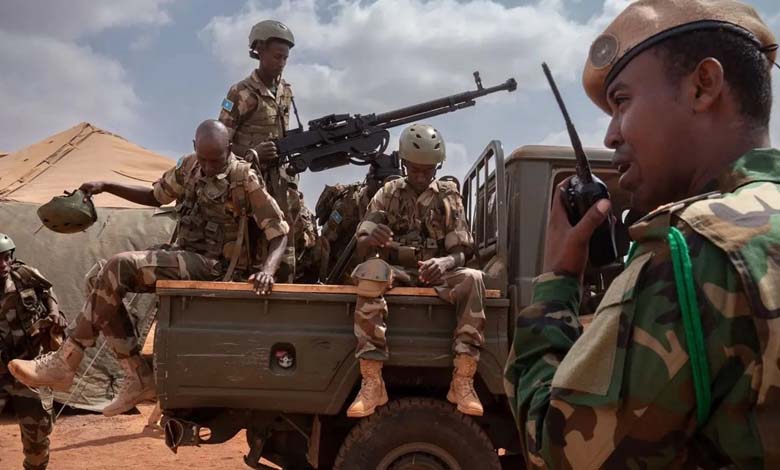Political Divisions Cast a Shadow over Counterterrorism Efforts in Somalia

Somalia’s fight against terrorism, particularly against extremist groups like Al-Shabaab, continues to intensify. However, political stabilization appears to lag behind, casting uncertainty over recent gains. This discord risks undermining security operations in this strategically important Horn of Africa nation.
-
Dangerous Escalation by Al-Shabaab in Mogadishu: Motives and Strategic Implications
-
Will Somali authorities succeed in drying up Al-Shabaab’s sources of funding?
A forum in a climate of division
On Monday, the Somali capital Mogadishu hosts the National Consultative Forum, initiated by President Hassan Sheikh Mohamoud. While the forum aims to facilitate an inclusive national dialogue, it is overshadowed by deep political rifts that could hinder its effectiveness.
The event brings together representatives of civil society from within Somalia and the diaspora. The agenda includes vital national issues such as unity, security, the Constitution, and elections, under the theme: “Dialogue as the Path to Consensus.”
-
What Are the Risks of Increasing Cooperation between the Houthis and Somalia’s al-Shabaab? Observers Respond
-
Why is the Somali group “Al-Shabaab” one of the most important arms of transnational terrorist networks?
Path to peace
In support of the president’s call, a group of Somali clan elders urged opposition leaders to take part in the forum. During a press conference held in Mogadishu, the elders expressed support for the initiative and called for all factions to come to the negotiation table.
They praised the role of the national armed forces and community defense units, stressing that counterterrorism efforts require national cohesion and public backing.
-
New strategy by Al-Shabaab terrorist group in Somalia
-
Washington monitors Houthi discussions to supply weapons to Al-Shabaab
Mixed reactions
Despite endorsement from some social and political groups—including a number of traditional leaders—key political entities have voiced serious concerns, most notably Puntland State and the opposition Forum to Save Somalia.
In a press statement, Puntland’s Minister of Justice, Mohamed Abdoulwahab, announced his region’s refusal to attend the forum. He called for the federal government to return to the 2012 Constitution and to create a neutral, inclusive platform. Puntland also demands recognition of Jubbaland’s election results and calls for national consensus-based elections.
-
Sanctions Target Money Laundering Network for Al-Shabaab – Details
-
Losses and Crises: Somali Al-Shabaab Movement Suffers Defeats Due to Its Terrorist Crimes
Meanwhile, Jubbaland has remained officially silent, consistent with its history of boycotting similar events. This silence further clouds hopes for a truly unified national agreement.
The opposition Forum to Save Somalia welcomed the president’s initiative but set firm conditions, including the participation of all stakeholders—particularly federal member states and opposition leaders—and an emphasis on defeating terrorist groups.
Earlier in June, President Hassan Sheikh Mohamoud had announced his intention to convene a “Forum of Political and Social Leaders” in Mogadishu, with the goal of reaching broad national consensus on state-building priorities, particularly in the areas of security, counterterrorism, democratization, elections, reconciliation, and finalizing the Constitution.
-
Continued Terrorism Confrontation by Somalia Against Al-Shabaab
-
Somali President reveals the date for eliminating the terrorist group “Al-Shabaab”
Ground-level progress
On the security front, State Minister for Defense Omar Ali Abdi revealed on Sunday the details of a targeted military operation in the Lower Shabelle region against Al-Shabaab strongholds.
The operation, he said, led to the arrest of several militants and the seizure of large quantities of weapons and equipment. He praised the “bravery of Somali forces and African Union mission troops,” noting the campaign is part of the ongoing ‘Silent Storm’ offensive to liberate southern territories from extremism.
In retaliation, Al-Shabaab blew up the strategic Barire Bridge in the same region, destroying it entirely. The bridge was a vital economic link in this agricultural region and had previously been attacked by the group three years ago.












